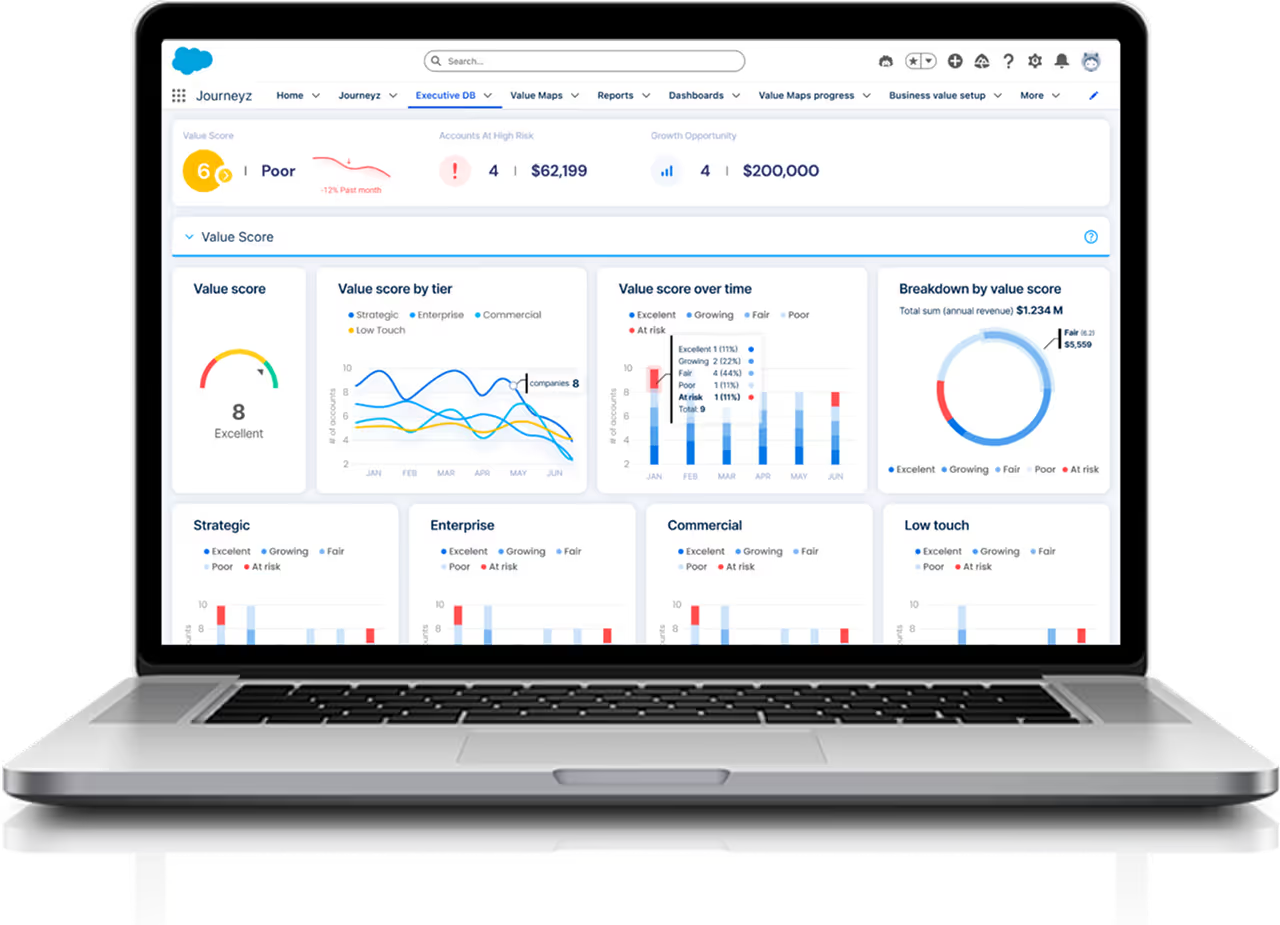Transforming QBRs: How AI Elevates Customer Success Quarterly Business Reviews
Quarterly Business Reviews (QBRs) have long been a vital component of customer success. These reviews provide a structured opportunity to engage with customers, assess progress, and align on goals. However, the traditional customer success QBR process often struggles to meet the needs of today’s fast-paced business environments. Reliant on manual preparation and static data, traditional QBRs frequently miss the mark in delivering real-time insights and personalized value. Enter AI—a game-changing technology that is revolutionizing how QBRs are planned, executed, and optimized.


In this blog, we’ll explore the challenges with the traditional QBR model and how AI transforms its core principles to deliver better outcomes for customer success teams and their clients.
The Shortcomings of Traditional QBRs
For years, traditional QBRs have followed a fixed framework. While this structure provides consistency, it also has inherent limitations that can hinder effectiveness:
- If a problem arises shortly after the last QBR, months may pass without corrective action, allowing the issue to escalate.
- New challenges that develop closer to the next QBR risk catching teams off-guard, reducing the perceived value of the meeting.
- Over-performing products or services may go unrecognized, missing opportunities to amplify success and deepen customer engagement.
- Static data reliance means insights are often outdated, leaving both the customer and the success team disconnected from real-time developments.
In today’s rapidly evolving business landscape, such delays and inefficiencies are no longer acceptable. AI offers a way to bridge these gaps, enabling customer success quarterly business reviews to become dynamic, data-driven, and future-focused.
Traditional QBR Framework: Solid but Outdated
The traditional QBR customer success model is built around five core principles:
- Preparation: Setting a detailed agenda tailored to the customer’s business objectives.
- Value Demonstration: Highlighting ROI through metrics and success stories.
- Customer Health: Reviewing account performance and satisfaction levels.
- Benchmarks: Providing comparative data for context and competitive insights.
- Future Planning: Outlining goals, next steps, and strategic initiatives.
While these principles provide a solid foundation, they rely heavily on manual efforts, scattered data, and generic insights, making it challenging to deliver the personalized, real-time value that modern businesses expect.
How AI Revolutionizes QBRs
AI is reshaping the way customer success teams approach QBRs. By automating value realization based on customer engagement channels, it allows teams to focus on strategic discussions and proactive planning. Here’s how AI transforms each core principle:
1. Personalized QBR Plans for Every Account and Persona
AI enables the creation of tailored QBR agendas by analyzing value data, correlating it with usage trends, across different customer personas. Instead of generic templates, AI generates hyper-personalized plans that address the unique needs of every stakeholder.
For example, AI can identify if a decision-maker prioritizes cost efficiency or innovation, ensuring the agenda resonates with their goals. This level of personalization builds trust and strengthens client relationships.
2. Real-Time ROI Emphasis
Demonstrating ROI has always been a cornerstone of QBRs, but traditional methods often rely on retrospective data. AI revolutionizes this process by providing real-time insights into how the product or service aligns with the customer’s evolving business objectives.
By connecting performance metrics to tangible outcomes, AI ensures that every customer success QBR highlights value in a way that resonates with stakeholders and reinforces the product’s impact.
3. Advanced Health Metrics: The Value Score
Traditional health scores, impacted by QBRs, often lack depth and fail to capture the full picture of customer happiness. AI introduces the Value Score, a comprehensive metric that combines usage data, satisfaction levels, and achieved outcomes.
Including this advanced metric in customer success quarterly business reviews allows teams to proactively address potential risks and drive more meaningful, value-oriented discussions.
4. Automated Benchmarking for Context and Clarity
Benchmarking is critical for helping customers understand their position relative to peers. AI automates this process, analyzing performance data across accounts and industries with similar business objectives to provide tailored benchmarks.
For instance, if a customer prioritizes revenue growth, AI can compare their progress to similar accounts, offering valuable insights and actionable recommendations. This not only validates their performance but also inspires strategies for improvement.
5. Intelligent Planning for the Next QBR
Setting goals for the next quarter is a key aspect of QBRs. AI simplifies this by analyzing historical business objective trends, customer feedback, and performance metrics to recommend an optimized scope for the next review.
AI can identify emerging challenges, suggest new features to explore, or highlight opportunities for growth. This forward-looking approach ensures that every QBR builds on the previous one, creating a continuous cycle of improvement and value delivery.
The Benefits of AI-Powered QBRs
By integrating AI into customer success QBRs, teams unlock several transformative benefits:
- Efficiency: Automated data collection and analysis save significant time, allowing teams to focus on strategic tasks.
- Scalability: AI enables customer success teams to manage more accounts without compromising quality.
- Personalization: Tailored insights create a deeper connection with customers, enhancing satisfaction and loyalty.
- Enhanced ROI: Data-driven presentations highlight value in a compelling, customer-centric manner.
The Future of Customer Success Quarterly Business Reviews
The traditional customer success quarterly business review has served its purpose, but it’s time to embrace a more dynamic, value-driven approach. AI offers a transformative opportunity to reimagine QBRs, making them more efficient, personalized, and impactful.
By leveraging AI, customer success teams can deliver QBRs that not only reflect past achievements but also pave the way for future success. In an era where every customer interaction matters, AI-powered QBRs are not just a competitive advantage—they’re the key to long-term growth and customer satisfaction.
Ready to Start your Journeyz?
Transform your customer retention and expansion strategies with the industry’s first Customer Value Platform.

.svg)


.svg)
.webp)




